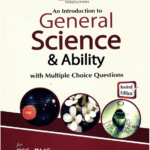Description
From Stephen Hawking, one of the most world-known landmarks on science book topics, A Brief History of Time reviews such fundamental questions in respect to the universe and the nature of reality-time and space. Published for the first time back in 1988, this science book had been written so that complex scientific ideas could be attacked by a range of readers; it quickly turned into a bestseller and popularized modern physics and cosmology.
Summary:
The book gives a rundown of the most salient ideas in astrophysics and cosmology, but channels them onto the origins, structure, and eventual end of the universe. It is also very considerate to answer some of the biggest scientific questions, such as how the universe began, what black holes are like, and whether time travel is theoretically possible. The following are the general topics about which the book expounds:
The Universe and Its Origins: Hawking opens by describing early conceptions of the universe and how we pieced it together through the ages, building evidence from scientists like Galileo and Newton, which he takes all the way forward to Einstein’s theory of general relativity, the theory that literally changed everything from having anything at all to think about space and time.
He does discuss the Big Bang theory, which purports that the universe began from an infinitely small, hot, and dense point and has continued to expand up until now. Then he ventures into mysterious regions of space referred to as black holes where gravity is so intense that it will not let light escape. He puts forth the theory of Hawking radiation, stating that black holes may slowly lose their energy and evaporate.
Quantum Mechanics: This book explores the principles of quantum mechanics, the science of the very small, and how it clashes with general relativity. Hawking discusses how both frameworks-quantum mechanics and relativity—are necessary to understanding the universe but very hard to reconcile.
Time and the Arrow of Time: On time itself, Hawking devotes considerable quantities of ink expounding what he refers to as the “arrow of time,” or why time does indeed take on the appearance of unfolding in one direction- from past to future-and whether such is inherently so or merely a feature of how humans perceive the universe.
The Nature of the Universe: Hawking discusses varied models of the universe, including the possibility that the universe is finite but unbounded, like the surface of a sphere; he also raises questions over parallel universes and multiple dimensions.
Theory of Everything: It was, in fact a quest for a unified theory, sometime dubbed the Theory of Everything: Hawking’s idea to merge both the principles of quantum mechanics and general relativity into one general framework for explaining all physical phenomena happening in the universe.
Here, the author does speculate as to how it may end-the universe may be destined to continue expanding indefinitely, perhaps collapse back into itself, or maybe reach a stable balance. Speculations aside, Hawking does mention time travel and the possibility of wormholes, though he is just as quick to qualify this theory as something yet purely speculative.
Writing Style:
Despite discussing extremely complex subject matter, Hawking writes in an accessible and pleasant style, engaging through metaphors and analogies to illuminate the concepts.
Appropriately, the entire book on modern physics avoids heavy mathematics and goes straight for the conceptual framework of this branch of science.
The overall message:
“A Brief History of Time” is more than a science book-it’s a philosophical question of the universe and our place in it. Hawking’s illumination of time, space, and cosmos reflects a deep-seated need to answer what are really the ultimate questions about existence. He leaves the reader in awe and questions with wonder about how this universe really works, especially while realizing the nature of human understanding as a limit.
For a long time, this book belonged to the class that popularizes scientific thought; in general, it was advancing cosmology to a more popular range and inspiring generations of readers to take a










Reviews
There are no reviews yet.